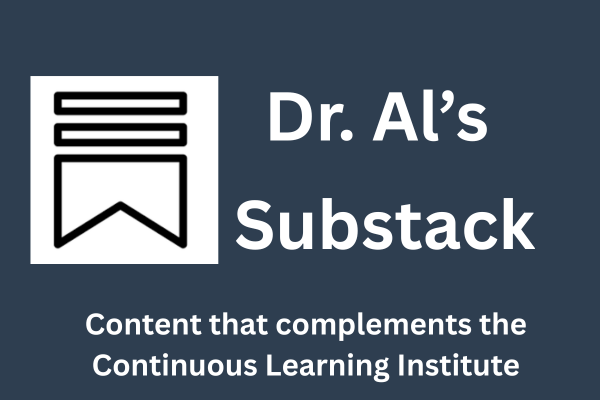Guided Pathways & Student Success with Dr. Davis Jenkins

Listen to the Episode:
What We've Learned from Research on Guided Pathways & Student Success Since Redesigning America's Community Colleges
In this episode, I interview Dr. Davis Jenkins, Senior Research Scholar, Community College Research Center at Columbia University, and Co-Author of Redesigning America's Community Colleges.
(Scroll down to access the transcript.)
We cover the following topics:
[5:30] Moving beyond program maps & meta-major configuration check boxes. Improve the student experience by bringing to life academic & career communities and improve teaching and learning. Research since 2015 demonstrates that:
1. Programs must have high opportunity & value (i.e., lead to a job that provides a living wage or junior standing transfer in a major).
2. From the start, help students create a plan based on their academic and career interests, understanding that they may change their plan, but at least they have one.
3. Implement academic & career communities to give students support and a sense of belonging.
4. Active and experiential learning is critical, especially in the first semester. Students need a "light the fire" course(s) to inspire and keep them motivated.
[15:00] Cost-analysis of Guided Pathways implementation.
Major costs:
1. Engaging the entire campus community, which means getting beyond the blame game. The system does what it was designed to do. There's an initial cost of engaging the community to focus on the system.
2. Organizing advisors or counselors per academic & career community.
3. Computer and software updates to create full program planning for students (but some of the software was not useful).
Overall findings:
- Guided Pathways offers clear economic value for students that would offset tuition increases.
- College leaders say Guided Pathways improves program value, student momentum/outcomes, COVID responsiveness.
- Guided Pathways represents a new community college model focused on attracting and retaining students with affordable, high-value programs and strong student supports.
Related Resources:
Funding Guided Pathways: A Guide for Community College Leaders
The Economics of Guided Pathways: Cost, Funding, and Value
[25:35] Unpacking the CCRC equity tool
- The tool helps colleges understand what programs students are in by DI populations and whether programs lead to a job with a living wage or transfer to junior standing in a major without excess units.
Finding: Students of color, especially women, tend to be in low opportunity programs (e.g., programs that won't produce a living wage) and/or are stuck in developmental education with excess units.
Download the equity tool:
Unpacking Program Enrollments and Completions With Equity in Mind
[32:42] When the president isn't engaged in the Guided Pathways work, leading from the middle is even more critical.
[38:08] Emergence of new leaders.
[41:14] The power of academic & career communities to improve student success.
[54:40] Summary and final advice for colleges.



Dr. Jenkins recommended resources:
Xueli Wang, On My Own: The Challenge and Promise of Building Equitable STEM Transfer Pathways
Her findings are critical to understanding the student experience.
Vince Tinto's work on student engagement is fundamental.
Al Solano, Why Colleges Struggle to Implement Priorities & What To Do About It (free download)
Other related resources:
Student Success Team Models to Consider
Guided Pathways: Operational Perspective
The Typical College Only Has 3 Months to Implement Priorities
Student Success Teams: Do's & Don'ts
Select Dr. Jenkins episode quotes:
"The first term learning experience for students can be soul crushing. We need to provide with them a 'light the fire' course in their first semester."
"Colleges need to understand: What programs are students in and how do we engage them through connections?"
"The sad part is that students blame themselves for dropping out of college. Students are not succeeding and it's not because of them!"
About Dr. Davis Jenkins
Dr. Jenkins is a senior research scholar at CCRC and a research professor in the Education Policy and Social Analysis Department at Teachers College, Columbia University. He works with colleges and states across the country to find ways to improve educational and employment outcomes for students, particularly students of color and those from low-income families.
Together with Thomas Bailey and Shanna Smith Jaggars, he coauthored Redesigning America’s Community Colleges: A Clearer Path to Student Success (Harvard University Press, 2015), which has helped to catalyze the national “guided pathways” reform movement. Jenkins is currently leading research on the implementation of pathways reforms and their effects on student outcomes and college performance in 120 colleges nationally.
He is also leading research on improving bachelor’s outcomes for community college students and strengthening high school dual enrollment so it functions as an on-ramp to college. Recent publications from those lines of research include a report published with The Aspen Institute and the National Student Clearinghouse on transfer outcomes by institution and state; The Transfer Playbook, co-researched and coauthored with Josh Wyner and his team at The Aspen Institute; and a report on college outcomes for students who take dual enrollment courses through community colleges while in high school. Jenkins earned a PhD in public policy analysis from Carnegie Mellon University and a bachelor’s in religion from Princeton University.
About Dr. Al Solano
Al is Founder & Coach at the Continuous Learning Institute. A big believer in kindness, he helps institutions of higher education to plan and implement homegrown practices that get results for students by coaching them through a process based on what he calls the "Three Cs": Clarity, Coherence, Consensus. In addition, his bite-sized, practitioner-based articles on student success strategies, institutional planning & implementation, and educational leadership are implemented at institutions across the country. He has worked directly with over 50 colleges and universities and has trained well over 5,000 educators. He has coached colleges for over a decade, worked at two community colleges, and began his education career in K12. He earned a doctorate in education from UCLA, and is a proud community college student who transferred to Cornell University.







